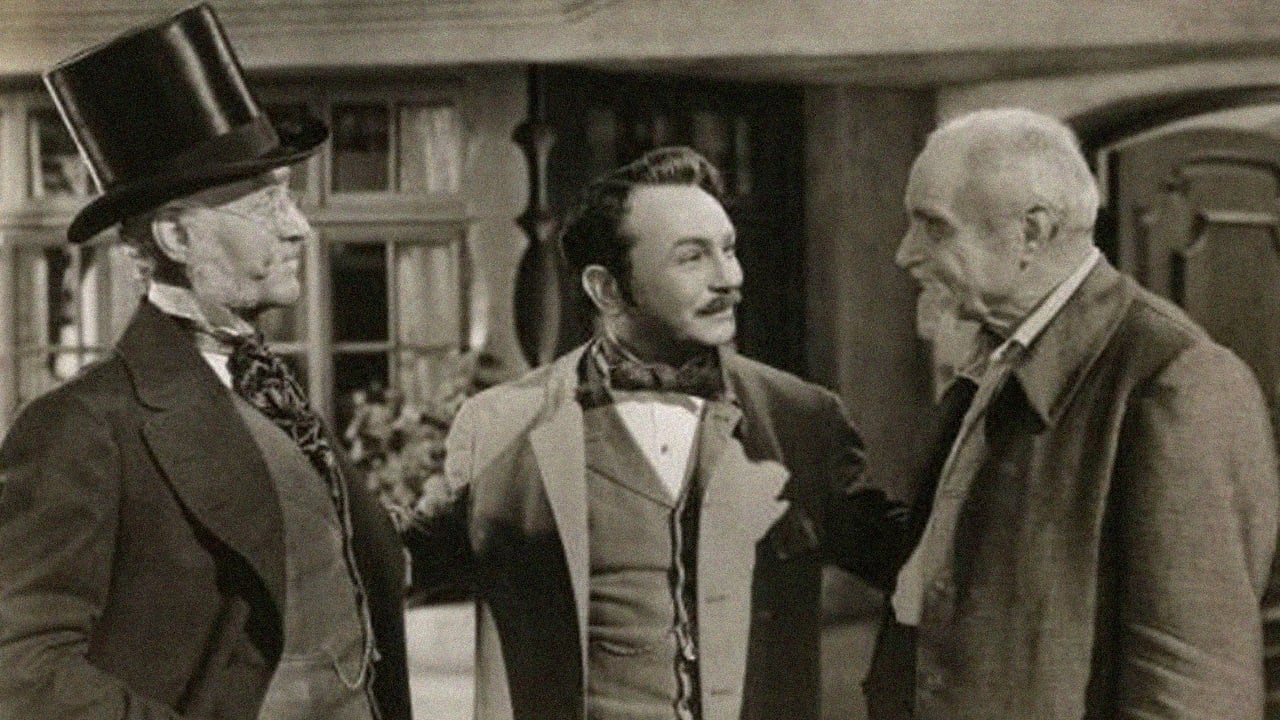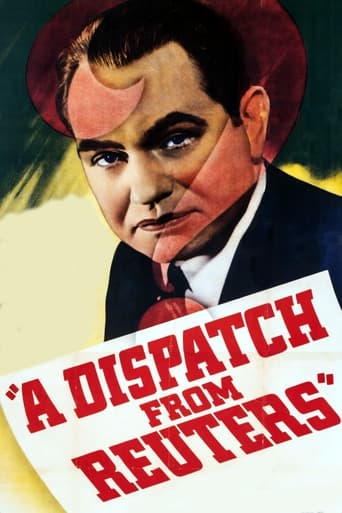

Enjoyable Warner Bros. biopic about Paul Julius Reuter, the man who built the famous Reuters news service. Edward G. Robinson players Reuter. The movie covers his story from when he was using carrier pigeons up through the use of the telegraph. As is often the case with these biopics, he faces hardships and doubt from critics but perseveres. It's all pretty formulaic, I admit, but also undeniably entertaining. I was never bored. Eddie G's backed up by a fine stable of character actors, including Gene Lockhart, Otto Kruger, Nigel Bruce, and Albert Bassermann. Edna Best is the love interest and Eddie Albert plays Robinson's assistant. A solid cast. The subject matter may not lend itself to the most exciting story but they do a surprisingly good job keeping it interesting.
... View MoreThis film is one where -- thank goodness -- Edward G. Robinson has an opportunity to once again star in a vehicle where he is not a gangster...and such non-gangster roles are the ones that I most enjoy him in (another favorite is "Dr. Ehrlich's Magic Bullet").From consulting Wikipedia, it appears that this film's script is more faithful to the story of Julius Reuter than most bio-pics tend to be toward their subjects. It's an interesting story, well told, with a group of supporting actors that lend authority to the script. You'll recognize many of them, but I'll single out Nigel Bruce who, for a change, isn't a buffoon! Eddie Albert has a thankless role, and to be honest, I don't find his performance here very favorable...but perhaps it's because of the character he plays. Edna Best is fine as Reuter's wife, and other favorites such as Albert Bassermann (who was not very prolific in the movies) and Otto Kruger make this a fine cast.Well worth watching for both a good, solid story and the fine acting talents of Edward G. Robinson.
... View MoreEdward G. Robinson was a most interesting movie star in classic film history. Like Bogart, James Cagney, and Spencer Tracy, he was a character actor who became a leading man. That didn't and doesn't happen to many actors or actresses. Robinson could do anything - he could be mean, pathetic, a blowhard, a loser, hilarious, whatever the role called for. Along with his Warners colleague, Paul Muni, he did his share of biopics. "A Dispatch from Reuters" from 1940 is one.Robinson plays Julius Reuter. Since this film is really about the news agency he founded, much of Reuter's life is left out. Of interest, he was a German Jew who moved to London and ultimately converted to Christianity (before marrying Ida, who was a Christian), taking the first name of Paul. He also became a naturalized British citizen and was named a Baron by Queen Victoria. He had three sons, and the last member of the Reuter family, the widow of one of his grandsons, died in 2009.Anyway, to get back to the film - there was some dramatic license taken, but the basic story is accurate. Reuter did start out with carrier pigeons, and the film does follow the evolution of the agency accurately as far as his news beating the ships, etc.Edward G. Robinson is excellent as Julius, and though it's unclear how much of a struggle the real Reuter had in getting clients, Robinson shows determination and ambition throughout the film. I have to agree with one of the reviewers on this site who thought the Eddie Albert character was too lazy to have continued to be employed. Albert is good, though, as is the rest of the cast -- Albert Basserman, Edna Best, Gene Lockhart, Nigel Bruce, Otto Kruger, and Montagu Love.Entertaining film.
... View MoreDispatch from Reuter's, A (1940) ** 1/2 (out of 4) Minor bio-pic from Warner features Edward G. Robinson as Paul Julius Reuter, the man who started off with pigeons and then building Europe's fastest news wire service. The late 30's and early 40's were full of biography movies and this one here is somewhat entertaining but there's just not enough here to make it really worth seeing. I know a few things about Reuter's life that wasn't included in this film and I can only guess that the subject wouldn't have interested folks in 1940. With that said, I'm really not sure what Jack Warner himself would have found so interesting about the story actually filmed. The main story has Reuter trying to stay ahead of other people and a big finale about his report on the Lincoln assassination and whether or not it's true. There really never is any drama that builds from any of the situations, although I will admit the stuff with the pigeons was pretty good. The film covers a wide range of years but the time itself never seems to move in the film. Not for a second did I believe I was watching something taking place in the 1820's and this really takes away from the atmosphere that should have been created. Robinson turns in a fairly good performance but I did expect more from him. He fits the role quite well but not once did I feel too much passion coming from him. Edna Best serves as the wife but doesn't really add too much. Eddie Albert does the best work of the cast with Gene Lockhart, Otto Kruger, James Stephenson and Nigel Bruce rounding out the supporting players. Child star Dickie Moore has a brief part in the film. I'm sure a good movie might be made with this story but sadly it's not this one.
... View More